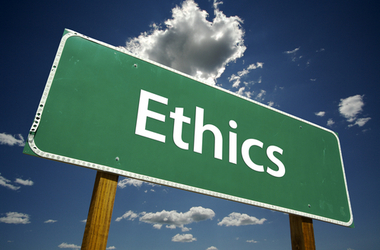One story in the Bible has be a source of inquiry, and much confusion. It is the story most often called “the rape of Dinah.”
Most English translations offer a poor rendering of the Hebrew. Here is the story in English and Hebrew, along with a write up of the passage by Jon Dorsey, Old Testament studies graduate student, and son of David Dorsey PhD a foremost Hebrew and Old Testament scholar. (you can wiki him here)
Genesis Chapter 34 בְּרֵאשִׁית
| א וַתֵּצֵא דִינָה בַּת-לֵאָה, אֲשֶׁר יָלְדָה לְיַעֲקֹב, לִרְאוֹת, בִּבְנוֹת הָאָרֶץ. | 1 And Dinah the daughter of Leah, whom she had borne unto Jacob, went out to see the daughters of the land. |
| ב וַיַּרְא אֹתָהּ שְׁכֶם בֶּן-חֲמוֹר, הַחִוִּי–נְשִׂיא הָאָרֶץ; וַיִּקַּח אֹתָהּ וַיִּשְׁכַּב אֹתָהּ, וַיְעַנֶּהָ. | 2 And Shechem the son of Hamor the Hivite, the prince of the land, saw her; and he took her, and lay with her, and humbled her. |
| ג וַתִּדְבַּק נַפְשׁוֹ, בְּדִינָה בַּת-יַעֲקֹב; וַיֶּאֱהַב, אֶת-הַנַּעֲרָ, וַיְדַבֵּר, עַל-לֵב הַנַּעֲרָ. | 3 And his soul did cleave unto Dinah the daughter of Jacob, and he loved the damsel, and spoke comfortingly unto the damsel. |
| ד וַיֹּאמֶר שְׁכֶם, אֶל-חֲמוֹר אָבִיו לֵאמֹר: קַח-לִי אֶת-הַיַּלְדָּה הַזֹּאת, לְאִשָּׁה. | 4 And Shechem spoke unto his father Hamor, saying: ‘Get me this damsel to wife.’ |
| ה וְיַעֲקֹב שָׁמַע, כִּי טִמֵּא אֶת-דִּינָה בִתּוֹ, וּבָנָיו הָיוּ אֶת-מִקְנֵהוּ, בַּשָּׂדֶה; וְהֶחֱרִשׁ יַעֲקֹב, עַד-בֹּאָם. | 5 Now Jacob heard that he had defiled Dinah his daughter; and his sons were with his cattle in the field; and Jacob held his peace until they came. |
| ו וַיֵּצֵא חֲמוֹר אֲבִי-שְׁכֶם, אֶל-יַעֲקֹב, לְדַבֵּר, אִתּוֹ. | 6 And Hamor the father of Shechem went out unto Jacob to speak with him. |
| ז וּבְנֵי יַעֲקֹב בָּאוּ מִן-הַשָּׂדֶה, כְּשָׁמְעָם, וַיִּתְעַצְּבוּ הָאֲנָשִׁים, וַיִּחַר לָהֶם מְאֹד: כִּי-נְבָלָה עָשָׂה בְיִשְׂרָאֵל, לִשְׁכַּב אֶת-בַּת-יַעֲקֹב, וְכֵן, לֹא יֵעָשֶׂה. | 7 And the sons of Jacob came in from the field when they heard it; and the men were grieved, and they were very wroth, because he had wrought a vile deed in Israel in lying with Jacob’s daughter; which thing ought not to be done. |
| ח וַיְדַבֵּר חֲמוֹר, אִתָּם לֵאמֹר: שְׁכֶם בְּנִי, חָשְׁקָה נַפְשׁוֹ בְּבִתְּכֶם–תְּנוּ נָא אֹתָהּ לוֹ, לְאִשָּׁה. | 8 And Hamor spoke with them, saying ‘The soul of my son Shechem longeth for your daughter. I pray you give her unto him to wife. |
| ט וְהִתְחַתְּנוּ, אֹתָנוּ: בְּנֹתֵיכֶם, תִּתְּנוּ-לָנוּ, וְאֶת-בְּנֹתֵינוּ, תִּקְחוּ לָכֶם. | 9 And make ye marriages with us; give your daughters unto us, and take our daughters unto you. |
| י וְאִתָּנוּ, תֵּשֵׁבוּ; וְהָאָרֶץ, תִּהְיֶה לִפְנֵיכֶם–שְׁבוּ וּסְחָרוּהָ, וְהֵאָחֲזוּ בָּהּ. | 10 And ye shall dwell with us; and the land shall be before you; dwell and trade ye therein, and get you possessions therein.’ |
| יא וַיֹּאמֶר שְׁכֶם אֶל-אָבִיהָ וְאֶל-אַחֶיהָ, אֶמְצָא-חֵן בְּעֵינֵיכֶם; וַאֲשֶׁר תֹּאמְרוּ אֵלַי, אֶתֵּן. | 11 And Shechem said unto her father and unto her brethren: ‘Let me find favour in your eyes, and what ye shall say unto me I will give. |
| יב הַרְבּוּ עָלַי מְאֹד, מֹהַר וּמַתָּן, וְאֶתְּנָה, כַּאֲשֶׁר תֹּאמְרוּ אֵלָי; וּתְנוּ-לִי אֶת-הַנַּעֲרָ, לְאִשָּׁה. | 12 Ask me never so much dowry and gift, and I will give according as ye shall say unto me; but give me the damsel to wife.’ |
| יג וַיַּעֲנוּ בְנֵי-יַעֲקֹב אֶת-שְׁכֶם וְאֶת-חֲמוֹר אָבִיו, בְּמִרְמָה–וַיְדַבֵּרוּ: אֲשֶׁר טִמֵּא, אֵת דִּינָה אֲחֹתָם. | 13 And the sons of Jacob answered Shechem and Hamor his father with guile, and spoke, because he had defiled Dinah their sister, |
| יד וַיֹּאמְרוּ אֲלֵיהֶם, לֹא נוּכַל לַעֲשׂוֹת הַדָּבָר הַזֶּה–לָתֵת אֶת-אֲחֹתֵנוּ, לְאִישׁ אֲשֶׁר-לוֹ עָרְלָה: כִּי-חֶרְפָּה הִוא, לָנוּ. | 14 and said unto them: ‘We cannot do this thing, to give our sister to one that is uncircumcised; for that were a reproach unto us. |
| טו אַךְ-בְּזֹאת, נֵאוֹת לָכֶם: אִם תִּהְיוּ כָמֹנוּ, לְהִמֹּל לָכֶם כָּל-זָכָר. | 15 Only on this condition will we consent unto you: if ye will be as we are, that every male of you be circumcised; |
| טז וְנָתַנּוּ אֶת-בְּנֹתֵינוּ לָכֶם, וְאֶת-בְּנֹתֵיכֶם נִקַּח-לָנוּ; וְיָשַׁבְנוּ אִתְּכֶם, וְהָיִינוּ לְעַם אֶחָד. | 16 then will we give our daughters unto you, and we will take your daughters to us, and we will dwell with you, and we will become one people. |
| יז וְאִם-לֹא תִשְׁמְעוּ אֵלֵינוּ, לְהִמּוֹל–וְלָקַחְנוּ אֶת-בִּתֵּנוּ, וְהָלָכְנוּ. | 17 But if ye will not hearken unto us, to be circumcised; then will we take our daughter, and we will be gone.’ |
| יח וַיִּיטְבוּ דִבְרֵיהֶם, בְּעֵינֵי חֲמוֹר, וּבְעֵינֵי, שְׁכֶם בֶּן-חֲמוֹר. | 18 And their words pleased Hamor, and Shechem Hamor’s son. |
| יט וְלֹא-אֵחַר הַנַּעַר לַעֲשׂוֹת הַדָּבָר, כִּי חָפֵץ בְּבַת-יַעֲקֹב; וְהוּא נִכְבָּד, מִכֹּל בֵּית אָבִיו. | 19 And the young man deferred not to do the thing, because he had delight in Jacob’s daughter. And he was honoured above all the house of his father. |
| כ וַיָּבֹא חֲמוֹר וּשְׁכֶם בְּנוֹ, אֶל-שַׁעַר עִירָם; וַיְדַבְּרוּ אֶל-אַנְשֵׁי עִירָם, לֵאמֹר. | 20 And Hamor and Shechem his son came unto the gate of their city, and spoke with the men of their city, saying: |
| כא הָאֲנָשִׁים הָאֵלֶּה שְׁלֵמִים הֵם אִתָּנוּ, וְיֵשְׁבוּ בָאָרֶץ וְיִסְחֲרוּ אֹתָהּ, וְהָאָרֶץ הִנֵּה רַחֲבַת-יָדַיִם, לִפְנֵיהֶם; אֶת-בְּנֹתָם נִקַּח-לָנוּ לְנָשִׁים, וְאֶת-בְּנֹתֵינוּ נִתֵּן לָהֶם. | 21 ‘These men are peaceable with us; therefore let them dwell in the land, and trade therein; for, behold, the land is large enough for them; let us take their daughters to us for wives, and let us give them our daughters. |
| כב אַךְ-בְּזֹאת יֵאֹתוּ לָנוּ הָאֲנָשִׁים, לָשֶׁבֶת אִתָּנוּ–לִהְיוֹת, לְעַם אֶחָד: בְּהִמּוֹל לָנוּ כָּל-זָכָר, כַּאֲשֶׁר הֵם נִמֹּלִים. | 22 Only on this condition will the men consent unto us to dwell with us, to become one people, if every male among us be circumcised, as they are circumcised. |
| כג מִקְנֵהֶם וְקִנְיָנָם וְכָל-בְּהֶמְתָּם, הֲלוֹא לָנוּ הֵם; אַךְ נֵאוֹתָה לָהֶם, וְיֵשְׁבוּ אִתָּנוּ. | 23 Shall not their cattle and their substance and all their beasts be ours? only let us consent unto them, and they will dwell with us.’ |
| כד וַיִּשְׁמְעוּ אֶל-חֲמוֹר וְאֶל-שְׁכֶם בְּנוֹ, כָּל-יֹצְאֵי שַׁעַר עִירוֹ; וַיִּמֹּלוּ, כָּל-זָכָר–כָּל-יֹצְאֵי, שַׁעַר עִירוֹ. | 24 And unto Hamor and unto Shechem his son hearkened all that went out of the gate of his city; and every male was circumcised, all that went out of the gate of his city. |
| כה וַיְהִי בַיּוֹם הַשְּׁלִישִׁי בִּהְיוֹתָם כֹּאֲבִים, וַיִּקְחוּ שְׁנֵי-בְנֵי-יַעֲקֹב שִׁמְעוֹן וְלֵוִי אֲחֵי דִינָה אִישׁ חַרְבּוֹ, וַיָּבֹאוּ עַל-הָעִיר, בֶּטַח; וַיַּהַרְגוּ, כָּל-זָכָר. | 25 And it came to pass on the third day, when they were in pain, that two of the sons of Jacob, Simeon and Levi, Dinah’s brethren, took each man his sword, and came upon the city unawares, and slew all the males. |
| כו וְאֶת-חֲמוֹר וְאֶת-שְׁכֶם בְּנוֹ, הָרְגוּ לְפִי-חָרֶב; וַיִּקְחוּ אֶת-דִּינָה מִבֵּית שְׁכֶם, וַיֵּצֵאוּ. | 26 And they slew Hamor and Shechem his son with the edge of the sword, and took Dinah out of Shechem’s house, and went forth. |
| כז בְּנֵי יַעֲקֹב, בָּאוּ עַל-הַחֲלָלִים, וַיָּבֹזּוּ, הָעִיר–אֲשֶׁר טִמְּאוּ, אֲחוֹתָם. | 27 The sons of Jacob came upon the slain, and spoiled the city, because they had defiled their sister. |
| כח אֶת-צֹאנָם וְאֶת-בְּקָרָם, וְאֶת-חֲמֹרֵיהֶם, וְאֵת אֲשֶׁר-בָּעִיר וְאֶת-אֲשֶׁר בַּשָּׂדֶה, לָקָחוּ. | 28 They took their flocks and their herds and their asses, and that which was in the city and that which was in the field; |
| כט וְאֶת-כָּל-חֵילָם וְאֶת-כָּל-טַפָּם וְאֶת-נְשֵׁיהֶם, שָׁבוּ וַיָּבֹזּוּ; וְאֵת, כָּל-אֲשֶׁר בַּבָּיִת. | 29 and all their wealth, and all their little ones and their wives, took they captive and spoiled, even all that was in the house. |
| ל וַיֹּאמֶר יַעֲקֹב אֶל-שִׁמְעוֹן וְאֶל-לֵוִי, עֲכַרְתֶּם אֹתִי, לְהַבְאִישֵׁנִי בְּיֹשֵׁב הָאָרֶץ, בַּכְּנַעֲנִי וּבַפְּרִזִּי; וַאֲנִי, מְתֵי מִסְפָּר, וְנֶאֶסְפוּ עָלַי וְהִכּוּנִי, וְנִשְׁמַדְתִּי אֲנִי וּבֵיתִי. | 30 And Jacob said to Simeon and Levi: ‘Ye have troubled me, to make me odious unto the inhabitants of the land, even unto the Canaanites and the Perizzites; and, I being few in number, they will gather themselves together against me and smite me; and I shall be destroyed, I and my house.’ |
| לא וַיֹּאמְרוּ: הַכְזוֹנָה, יַעֲשֶׂה אֶת-אֲחוֹתֵנוּ. {פ} | 31 And they said: ‘Should one deal with our sister as with a harlot?’ {P} (text obtain here) |
Response from
Jonathan Dorsey November 10 at 10:36am
We recently talked about this in class. The clincher for seduction lies in a Hebrew word study, and a little knowledge of how Hebrew is used. The key to the word study lies in Deut. 23 – 28. The word translated “rape” or “sleep with” in each case – (Deut. & Genesis) are all the word shacav, which does not mean rape all by itself, but simply “to lie down (with)”. David and Bathsheba “shacav”ed…
Gen 34:2 Shechem took her, shacav’s her, and anah’d (violated) her.
Deut 22:23 – Man meets betrothed girl and shacav’s her and anah’d (violated) her in town – both die – man because he anah’d (violated) her, and the women because she did not scream out for help (meaning she wanted to shacav).
Deut 22:25 – Man meets betrothed girl in country – shacav’s her – she screams out for help, he hazak’s (overpowers) her.
Deut 22:28 – Man meets non-betrothed girl – shacav’s her anah’d (violated) her – they should marry. [He should pay the bride price to her family, to compensate them for their loss of a daughter, (who would now not be desired as a wife, traditionally) and he must care for her financially always.]
Like Hebrew in general, one is forced to look at the context of the verse to determine the the exact variation of a word that has multiple uses. It looks like the Dinah story matches with the cases of Deut.23 and 28. Because similar words to describe the events are used: the man shacav’s her, and anah’d (violates) her. The context in these three cases do not suggest force – In the case of Deut. 28, they are supposed to marry. This would be SICK if it were not a case of clear seduction. So if a women is shacav’d, and anah’d (violated), and no other word in the context suggest violence, force, or coercion, we are left with a Hebrew word phrasing that means seduction.
However, we see that Deut. 25 stands apart – we have a new word introduced – hazak (overpowers), and the fact that she screams for help – these are all context clues that the shacav-ing was clearly not consensual, and the man will die as if he committed murder.
The Dinah seduction has plenty of context clues in the wording to point to the fact that she was not raped. Shechem spoke tenderly to her, he asked her father for her as a wife, etc. In addition to our word study, we can see these statements as we are supposed to see them – as a man who has fallen in love with Dinah. His actions were wrong / dubious though – sleeping with her and not being married is a violation, and keeping her with him while they asked Jacob for his blessing for their marriage, etc.
Even though Dinah’s thoughts are never shared with the reader, it would be assumed that the writer would put something in to make it clear to the audience if it was not consensual (such as was done in Deut. 22:25). This is required for the Hebrew audience when the words used are ambiguous – such as shacav, which needs additional context clues to tell the reader what kind of shacav it was. He would have used the word hazak or the fact that she screamed or something. The author would not leave the audience with an ambiguous situation and not clarify if it was rape or seduction – the same word (shacav) is always used for both. With the context clues we have, and the fact the the same guy wrote both Deut. and Genesis and clearly drew apart stories/cases that showed the difference between rape and seduction, it seems fairly certain that Dinah is a case of seduction.
Sorry I messed up my references – Look in Deut 22:23-28!! Deut. 22:25 is the one that clearly is rape. Deut. 22:23 and 22:28 are talking about seduction.
Also, the word for “take” – lach – does in NO way suggest violence when Shechem “lached” Dinah. If it did, the author would need to reinforce that notion with some adverb or other wording in the sentence to make that clear. Since he does not, we are left to see this as simply “spirited away” or “stole away with her” or “took her to his crib” or something. :) A Hebrew word study of using the verb “lach” in with a person as the verb receiver would be useful. I did so, and in every case I reviewd (the first 10) , it is not forced or done by overpowering. Abraham “lached” his wife and left to go to the land of Canaan. Lamach “lached” for himself two wives.
-Jon Dorsey
# # #
Please leave any comments you have.



